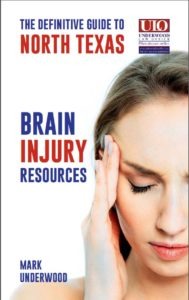
Drug testing can be quite controversial, and its legality has been called into question several times over the years by civil rights activists and labor advocates. Texas has its own set of rules and regulations regarding drug testing. These involve who can perform it, when it is legal, and when someone can be fired because of it.
Many employers require their employees to submit to drug tests to demonstrate that they are not secretly using illegal drugs on the job. As a result, thousands of Texas workers will have to take a drug test at some point or another. This requirement may apply to minimum-wage fast-food workers as well as white-collar professionals.
Private vs. Public Employers
The rules for drug testing vary depending on whether an employer is in the private or public sector. There are practically no limits on the drug testing that a private employer can conduct.
However, government employers must have a compelling justification for performing a drug test. Otherwise, administering drug tests on employees could constitute an unreasonable search and seizure.
For a free legal consultation, call (972) 535-6377
Reasons for Drug Testing
Employers may have many valid reasons for performing drug tests. These reasons may include:
- Concern that there is a problem with substance abuse among workers
- Insurance policies that require drug testing
- Job duties that require sobriety
- State or federal regulations
- Reducing workplace accidents or crimes
Drug Testing in Texas
Texas requires companies that employ at least 15 people to enact comprehensive drug reduction policies, most of which include drug testing. An employer must give this policy in writing to their staff to sign. Employers cannot perform drug tests on employees who have not given their written consent. While workers do have the option of refusing to sign the policy, it is usually possible to fire them for declining.
Some employers choose to require pre-employment drug testing in order to screen potential applicants for drug use. Another option is for companies to enforce random drug testing multiple times a year for their current employees. These practices are perfectly legal for private employers in Texas.
Click to contact our personal injury lawyers today
Employee Rights and Drug Testing
While you may be required to take a drug test – either as part of a pre-employment process, a random test, or a “for cause” test once you are employed – keep in mind that you still have additional protections.
While both pre-employment and random drug testing are legal, there may be problems with:
- The way an employer carries out that test
- The reasons why an employer is asking you to take a test
For instance, an employer cannot ask you to take a drug test for discriminatory reasons. That is, if you believe that you were drug tested specifically because you are part of a protected group or category (such as race, ethnicity, or another cohort), your employer may have violated your rights.
A drug test should also be conducted with respect for an employee’s privacy. If you are publicly handed a cup to urinate in, this way could also constitute a violation of your rights.
Complete a Free Case Evaluation form now
If You Fail a Drug Test, What Consequences Could You Face?
Naturally, if you took a drug test and your results showed that you were positive for a controlled substance, you may be concerned about what could happen next. You may be wondering:
- If you could lose your chances of employment
- If you might lose your job
- If you could face criminal charges
Effects on Employment
Failing a drug test during a pre-employment screening could lead to disqualification for the job. On the other hand, if you’re already employed and you fail a drug test through a random or “for cause” test, you may face one of couple possible scenarios:
- Your employer may give you options to address your drug use: In this situation, you could attend a rehabilitation program and return to your job.
- You may face termination: Both public and private-sector employees who fail a drug test face the risk of termination.
However, you should be able to expect that the consequences for drug testing should be clearly stated in writing by your employer. In fact, the Texas Workers’ Compensation Act notes that businesses with 15 or more workers should give the details of their drug testing policy. Employers must also provide details about drug violation penalties to their workers, per the Texas Workforce Commission (TWC).
Additionally, you should expect to know what constitutes a drug policy violation. For example, your employer may have a “zero tolerance” policy, whereby any positive results for drug use give the employer authority to terminate. Other employers may offer a more flexible approach, where employees may not test positive for drug use above a certain threshold.
Criminal Charges
For those with no prior criminal record, failing a drug test at work may not lead to any further police investigation. However, if you have previous charges or are on probation, you may be concerned about how failing your drug test will affect you.
You may face penalties if you are currently on probation. Depending on the terms of your probation, failing a drug test could lead to stricter probation terms or even jail time.
If you were caught in possession of a controlled substance, you could face felony charges and jail time (per Texas Health and Safety Code Title 6 Section 481). If you are facing drug crime charges, you may wish to get help from a Drug Crimes Lawyer from our team who can explain your options and build a defense.
We Can Help You Understand Your Options After Failing a Drug Test
If you are facing drug charges as a result of a drug test at work, we may be able to help. A drug crimes and criminal defense lawyer from Underwood Law Office can listen to your story, advise you, and strategize a compelling defense for your case.
Call someone from our team today to learn more during a free consultation: (972) 535-6377.
Call or text (972) 535-6377 or complete a Free Case Evaluation form





